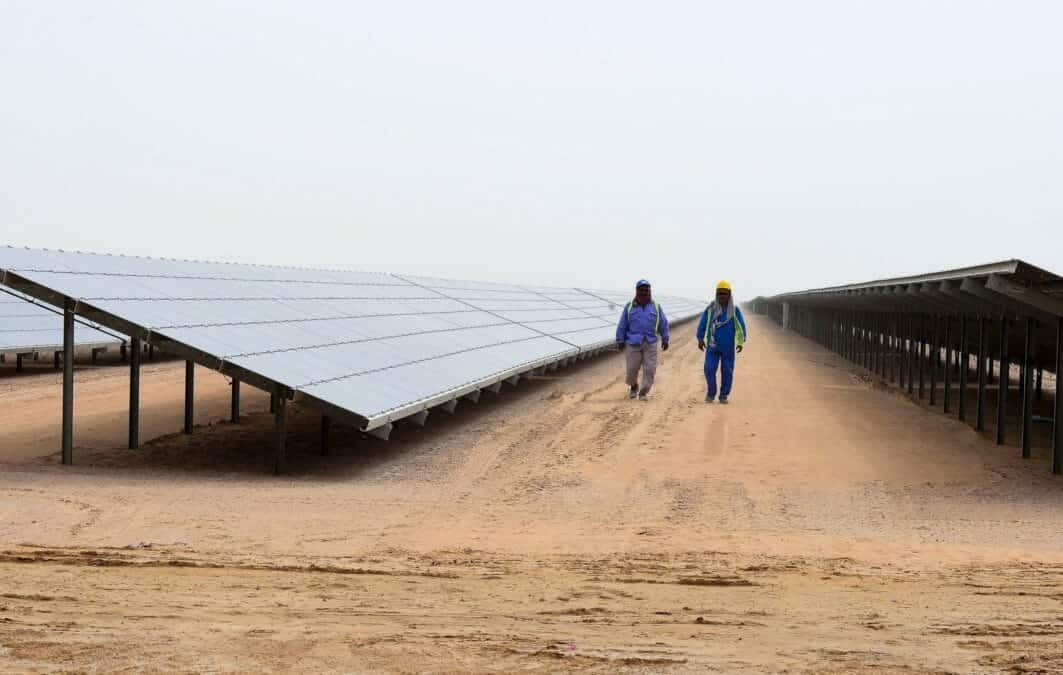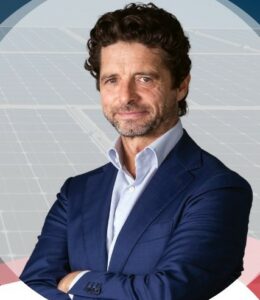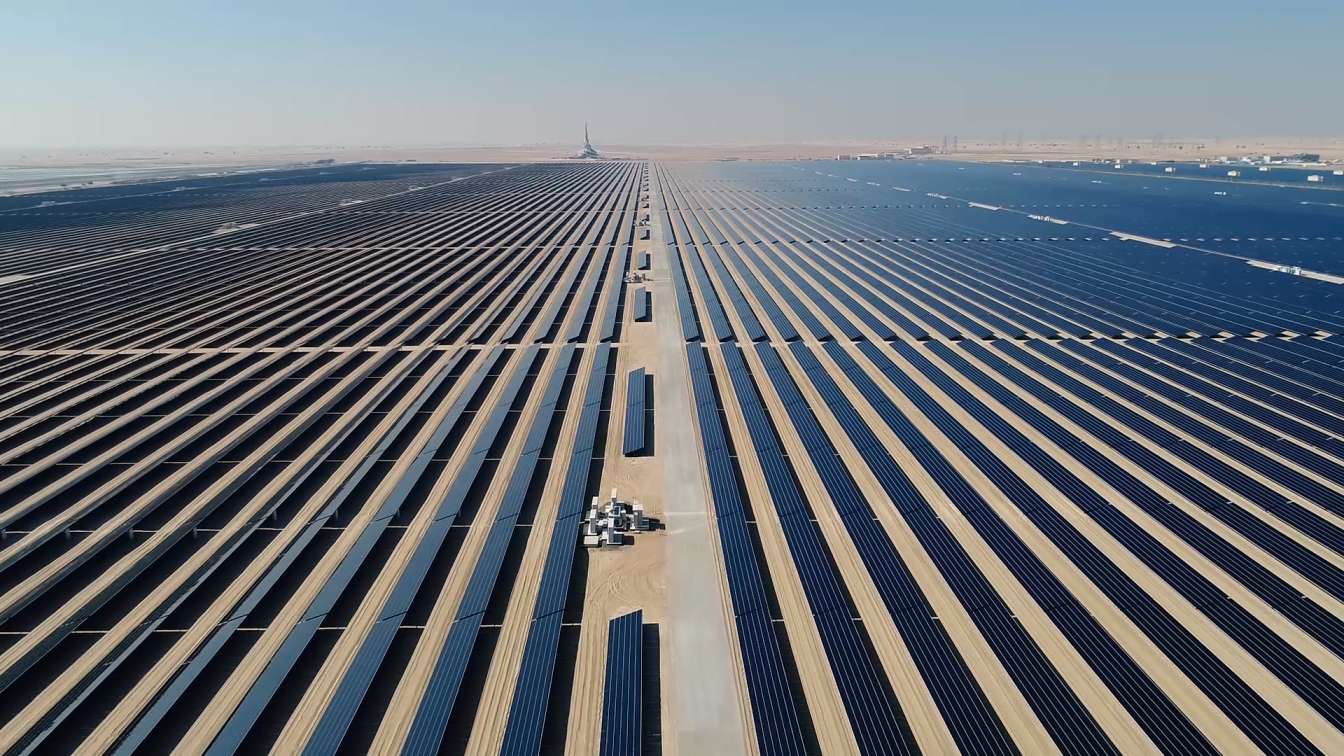Dubai, UAE — When it comes to renewable energy, Dubai is one of the most ambitious cities in the world. The emirate has set a goal of generating 75 percent of its electricity from renewable sources by 2050, and solar energy is a key component of that strategy.
The Mohammed bin Rashid Al Maktoum Solar Park, the world’s largest single-site solar park, demonstrates Dubai’s commitment to solar energy. The solar park is expected to have a total capacity of 5,000 MW by 2030 and is already capable of powering over 270,000 homes.
Aside from the Mohammed bin Rashid Al Maktoum Solar Park, Dubai is also investing in other solar energy projects, such as the DEWA Shams Dubai initiative, which allows homeowners and businesses to install solar panels on their properties.
“UAE is truly at the forefront of the regional push to transition to renewable energy. Looking at the various initiatives, we can see that Dubai has set a very aggressive energy target. Renewable energy will account for 75 percent of total energy consumption by 2050. That is a lot, and it is the best part of Dubai. It’s not just goals, it is regulations and initiatives,” says Laurent Longuet, CEO of SirajPower, a leading solar company in Dubai.
Dubai is also a leader in clean energy technology research and development. The emirate is home to the Dubai Solar Institute, a world-class research center focused on solar energy technologies. The institute is also developing new renewable energy technologies, such as solar-powered water desalination.
Several factors drive Dubai’s focus on solar energy and clean energy technology. First, the Emirate heavily relies on imported oil and gas for electricity generation. This makes it vulnerable to fluctuations in energy prices and supply disruptions. Second, Dubai is committed to reducing its carbon footprint and becoming a more sustainable city.
A decade of solar success
Dubai’s investment in solar energy and clean energy technology is already significantly impacted. The emirate’s solar energy capacity has increased by over 100 times in the past decade, and the cost of solar energy has fallen dramatically. It is now one of the cheapest places in the world to generate solar power.
According to Longuet, this region has approximately 360 days of sunny weather. That fact will not change in the coming years, and solar is by far the cheapest way to generate electricity today.

“Electricity consumption is increasing in Dubai and throughout the region. Every year, we require more energy, and we require this additional energy to be green because we cannot continue to increase emissions. So, when these three facts are combined, solar is very abundant, solar is very cheap, and it is clean energy. It is the vision of Sheikh Mohammed, who stated over a decade ago that his ultimate goal is to have solar panels on every roof in Dubai,” Longuet told TRENDS.
He added that in addition to the consistent vision, the unchangeable solar regulations and the business-friendly environment in Dubai, there are investors eager to invest in such projects.
“There are many investors, particularly in this region, who want to diversify their investments and are looking for opportunities to invest in renewable energy because they believe it will be a growing market,” he said.
“We have the regulations in place that will allow us to do so, and we have clients who are very focused on moving in this direction,” he said.

The key to Dubai’s solar energy achievements was its early start, said Longuet. He said the emirate started working in solar energy sector more than a decade ago when people were unaware of global warming and alternative solutions like solar.
“We had to educate and persuade people about this expensive technology. Today, everything changed. Every company has a sustainability plan because most believe they must, and their clients and employees press them. In addition, alternative solutions, such as solar, are cheaper too. Thus, they incur no additional costs,” he said.
Longuet believes the demand for solar power is enormous, and many clients are requesting new solutions.
“For example, we have existing clients who have installed solar on all of their facilities for the past six to seven, and they are now interested in even greener solutions and reducing their electricity bills,” he said.
“I expect that in the next five years we will see some diversification in technology and methods of implementing solar to continue increasing the amount of solar energy being used,” he said and added that there is need for storing solar power also.
Longuet also expects a significant shift toward electric vehicles in the coming years, which he said is already happening. For example, three years ago, there were no electric vehicles in Dubai.
“Today, you can’t go more than a kilometer without seeing an electric car, and in five years, it will almost certainly be everywhere,” he said.
“Perhaps half or more of the fleet will be electric, requiring more electricity and solar. Since you can’t charge all vehicles simultaneously, infrastructure and smart grid management will be needed. Thus, it would be best to balance vehicle changes with available electricity. So, all of this technology will be available in the coming year, and we must be prepared to balance production and consumption,” he said.







